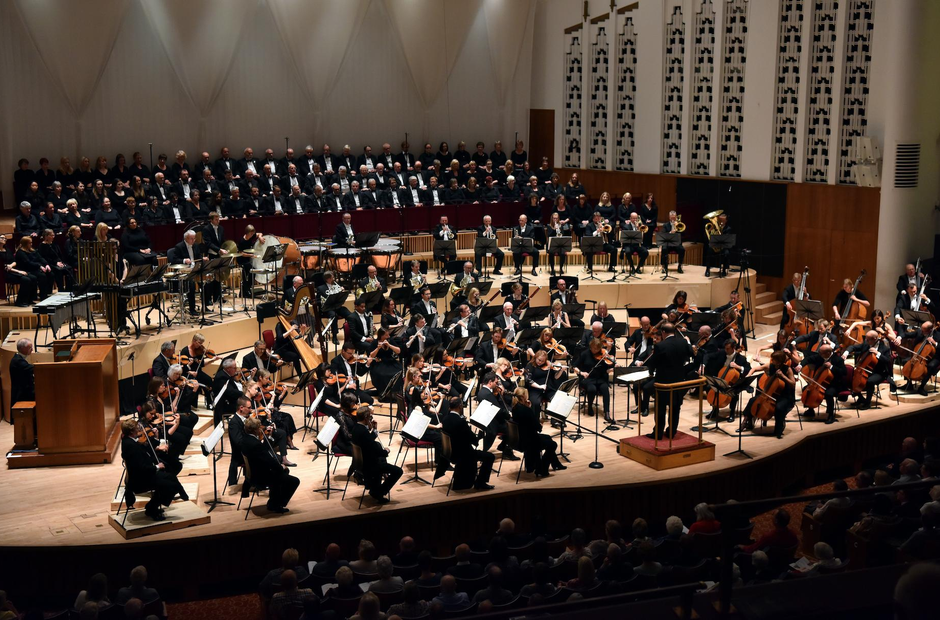Bruckner’s Fourth Symphony, ‘The Romantic’, is partnered with Haydn’s Symphony No. 90, under the expert guidance of Royal Liverpool Philharmonic Orchestra’s Principal Guest Conductor Andrew Manze for a powerful and emotional musical evening.
Haydn’s Symphony No. 90 was commissioned as part of a trilogy by Count d'Ogny following the popularity of the so-called Paris symphonies. Premiering shortly before the French Revolution changed the cultural landscape of Paris, this bright and energetic piece was a lovely opening to the evening.
The first movement leads us into a world where the gentle tones of the flute highlight the rises and falls which open this powerful piece. The second movement cements our arrival in this welcoming place, where the soothing tones of woodwind continue to lull us into a sense of tranquillity. The calm is contrasted with hauntingly tense moments which give a level of depth to the piece.
The regal tones of the third movement cement our place in the landscape of the piece. The powerful notes from the oboe continue the woodwind theme and give the piece a tone of uncertainty. The final movement removes any sense of this uncertainty, pounding towards a triumphant euphoria, the climax of which is of course unknown, the joke of the finale being taken full advantage of by Manze.
Manze’s affectionate introduction to Bruckner’s symphony makes it clear that he has a great deal of admiration for the composer. Telling us that if Bruckner were alive today, he would be making beautiful film music rings true when we hear this beautifully cinematic piece of music.
Bruckner’s music has been compared with both landscapes and cathedrals and Manze observes that the Liverpool Philharmonic, with its location being halfway between the two Liverpool cathedrals, is an ideal venue for the devout Bruckner’s work. While the size of cathedrals is often contemplated when considering their breath-taking beauty, it is in the smaller details that the most beautiful elements can be found.
The first movement is a beautiful sunrise, haunting brass revealing a misty morning as the world wakes up. Very stirring, there is something quite nostalgic about the opening which leaves you feeling both in awe and cautious about what is to come. Bruckner’s music is often compared with flowing rivers, and if there was ever the sound of water in orchestral music, this movement is it.
The melancholy, funereal tones of the second movement will pull at your heartstrings while the orchestra literally pluck across all elements of the string section. The ominous feeling is contrasted with hopeful sounds which give a sense of warmth and love. Haunting and beautiful, this is truly a memorable part of the work.
The third movement leads us to a more jubilant mood. Reminiscent of a mediaeval hunt, this is an exciting and exhilarating part of the symphony which reveals the true cinematic beauty of the piece. Call and response elements feel both like friendship and shameless posturing with the core of the music feeling very innocent.
The Finale is powerful and violent, bringing us into a fantastical world of the imagination. It is clear to see why Bruckner called his piece “Romantic” as we find ourselves in a magical world where moments of calm are contrasted with elements which remind us not to become too comfortable. The shimmering, gently flowing rivers of the first movement become a wild sea as waves crash and cymbals add a heightened sense of drama.
Reviewer: Donna M Day
Reviewed: 6th February 2020
North West End UK Rating: ★★★★★

